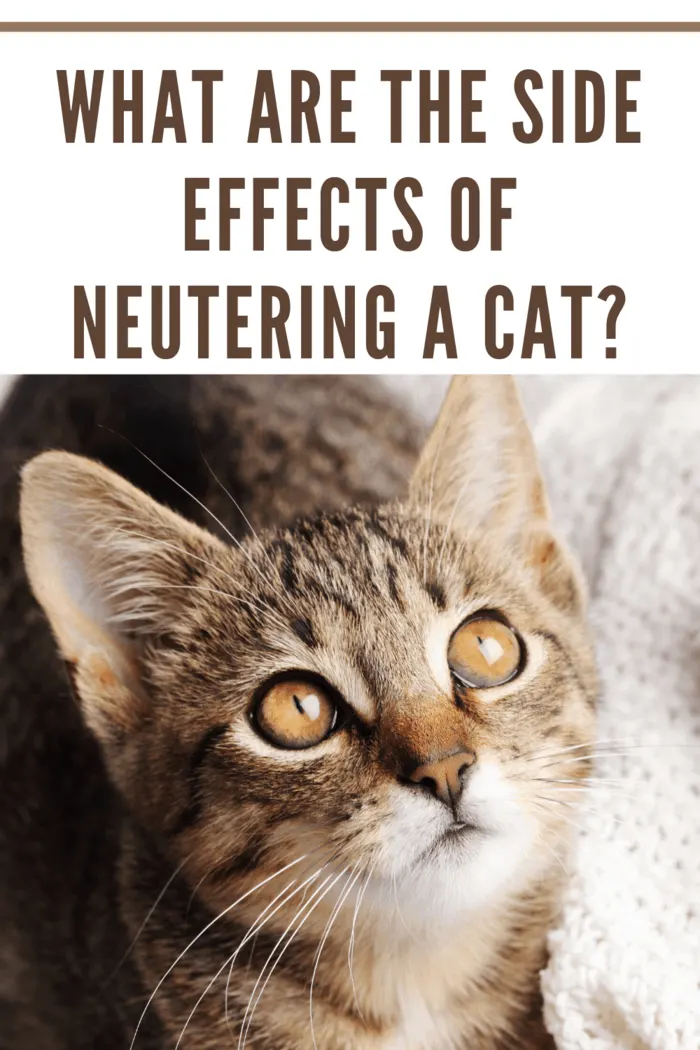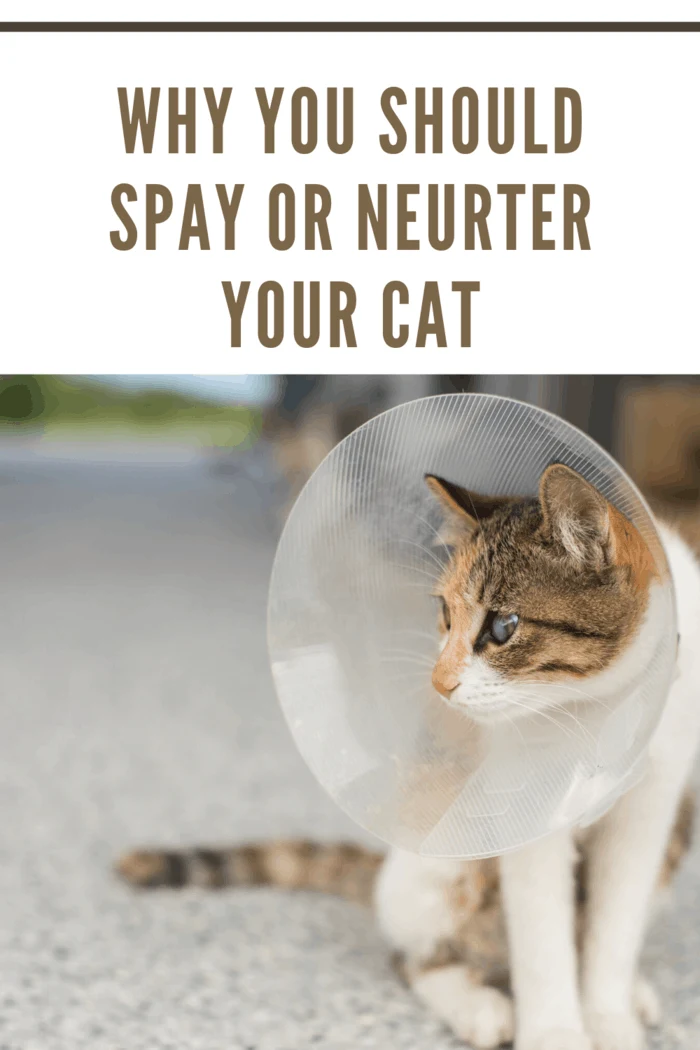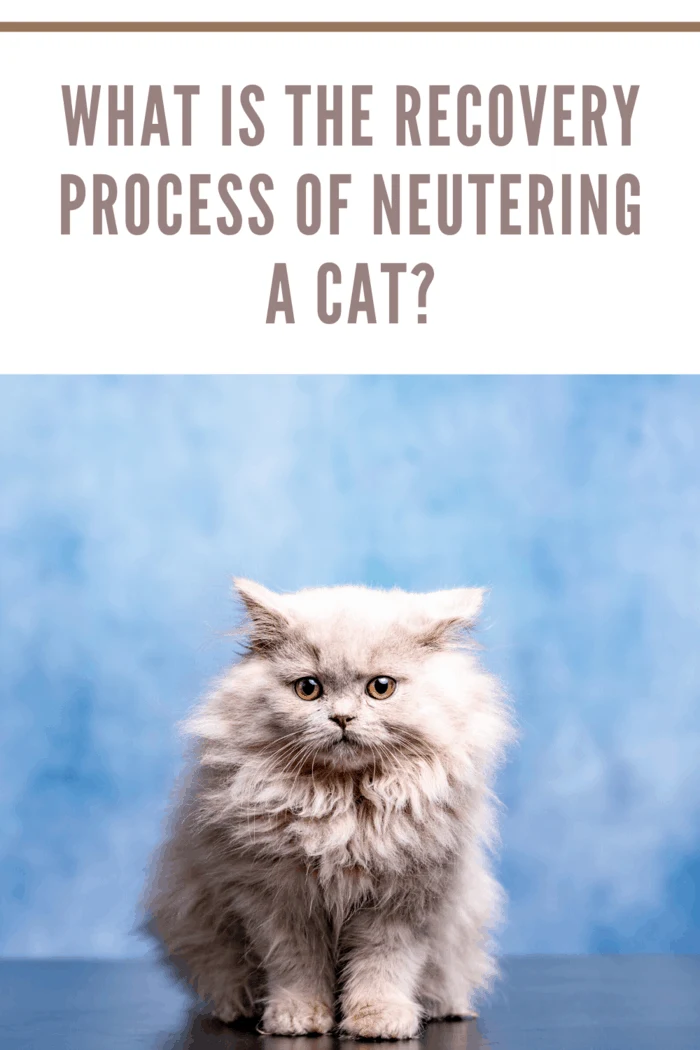If you are considering the orchiectomy of your cat, you should have in mind the positive impact it will have on your pet.
Neutering or spaying makes cats live longer and stay healthy.
It’s the natural protection from reproduction, which helps avoid unwanted kitty babies that are often being euthanized.
Moreover, castrated cats don’t bleed and mark territories.
They are less aggressive and build more trust with humans, so why won’t you give it a shot?
According to PetPlace.com, more and more people decide to neuter their little friends because of the overall benefits.
Some of them don’t know about the possible negative results on their pupils.
The difference between spaying and neutering is simple.
First, one refers to female cats involving the excision of gonads.
The second one is the removal of male testicles.
Below we point out the most common side effects of spaying/neutering a cat.

Recovery process
The recovery process contains only temporary side effects, but you should be aware of them.
After the spying/neutering, your cat will, for sure, take along to wake up from anesthesia.
It will sleep more and stay a bit dizzy for a bit.
The First 24-72 hours after the surgery can also include dehydration, lack of appetite, and excessive vomiting, as well as intense bleeding and swelling, odor at the suture line, and extreme lethargy for another few days.
Don’t worry about your buddy.
After such surgery, all these symptoms are expected, and the cat will handle them well.

Weight Gain
One of the most common side effects after castration of your cat is the possibility of gaining weight.
It happens because unspayed cats typically have a strong mating desire, allowing them to expend lots of energy looking for a partner for reproduction.
Castrated cats don’t produce sex pheromones, which is why they don’t interact that much with other animals.
As a result, cats get lazier and less active.
Feeding them with the same amount of food and providing the same caloric balance can naturally cause weight gain.
This is why, before the castration, you should consult nutrition change for your pup with the vet.
Less activity
As said above, castrated cats are not interested in mating anymore, which generally would be their main daily activity routine.
After neutering, cats become more passive, sleep much more, and lose motivation to move, which, as a result, may cause obesity.
You need to provide your cat with some activities to keep it in good shape.
Think of the ways to gain your pupil’s interests, buy some toys and gadgets, and make your lazy friend active again.
Urinary incontinence
It may happen that your cat, after spaying/neutering, will have problems with healthy urination.
It can happen soon after the castration or years after that.
As pets age, they may become incontinent.
This may be due to weakening the muscles that hold urine in the bladder.
Another reason for urinary incontinence can be so-called “Feline urological syndrome,” where you can observe difficulty passing urine.
It may be caused by subclinical stress or chronic urinary infections.
Bladder infections
Postoperative infection can have both an internal and an external base.
It’s pretty normal to catch the infection around the incision site, especially when the cat sits in wet places.
It can cause cystitis or urinary infections that can be cured with antibiotic therapy.
You should ask your vet for more wet cat food and increase its daily water intake to prevent this situation.
Internal bleeding
Don’t worry; it is not that common.
In some cases, the ligature around a blood vessel breaks or slips off after the abdomen is closed.
It appears mainly when the cat is active, which hardly ever happens after castration.
However, if your cat acts differently than it should, the clinical symptoms are general weakness, pale gums, distended abdomen or disgust for food, and extreme weight loss.
How to take care of the cat after spaying/neutering
You need to take a few things into account after your kitty’s castration.
Proper care is critical after such surgery.
First of all, don’t feed your cat for 24h after the operation.
It needs to get rid of all the medicals from its body.
The day after neutering, you should feed your friend easily digestible food in small quantities.
Check the postoperative wound every day, and don’t let the cat scratch or lick it.
Do not let your pup out alone for at least a week and give up the bath for a while.
That will speed up the recovery process and increase the buddy’s safety.

The bottom line
Spaying/neutering your cat has more pros than cons.
It protects your animal against many diseases, e.g., cancer.
It naturally lowers the cat’s population and the problem of unwanted babies.
Your cat is happy, healthy, friendly, and lives longer.
Castrating your cat is an excellent decision.
Learn more about the most common illnesses in cats.
